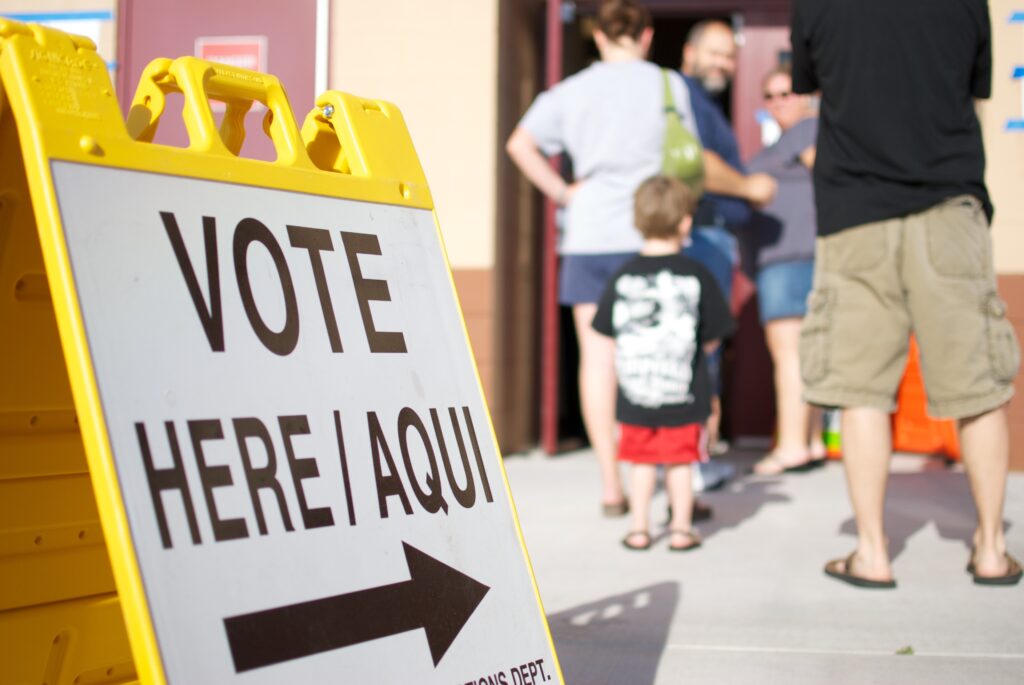RNC and Arizona Republicans Appeal Case Challenging Proof of Citizenship Laws
WASHINGTON, D.C. — The Republican National Committee (RNC) and Arizona Republican legislators appealed a case yesterday regarding two laws requiring documentary proof of citizenship and residency to vote.
The case was filed against numerous state and county officials, but the RNC and Arizona GOP leadership intervened in the case.

A lawsuit was filed in March 2022 on behalf of Mi Familia Vota and Voto Latino, pro-voting organizations, challenging Arizona House Bill 2492, which requires new voters registering with federal forms to provide proof of citizenship or residency documentation if they want to vote in presidential elections or vote early by mail for any office.
Under the law, voters who registered when the requirement wasn’t in place, which would have been before March 30, 2022, would also have needed to provide proof of citizenship to vote in presidential elections. Also, the legislation empowered the Arizona attorney general’s office to investigate voters with missing citizenship statuses.
Separately, there’s a provision in H.B. 2492 that requires people using the state voter registration form to list their birthplace, information that is not needed for the federal form. Also, someone’s birthplace is not material to a voter’s eligibility and does not determine if they are a citizen.
People use state forms to register for their state and local contests, and the National Mail Voter Registration Form is used to register to vote in federal elections, like the presidential race.
Mi Familia Vota and Voto Latino argue in their complaint that the Arizona law “severely burdens the right to vote and, in many cases, will deny that right entirely, disenfranchising eligible, lawful voters in violation of the First and Fourteenth Amendments.” The groups add that “as a result, tens of thousands of Arizonans will be forced to jump through unnecessary hoops to access the mail voting system.”
One of the Republicans’ main arguments for supporting this law was that they wanted to stop noncitizens from voting in American elections.
However, in the complaint, the plaintiffs argued that “The Proof of Citizenship Restriction continues a baseless assault on Arizona’s election system based on a conspiracy theory that non-citizens are voting, despite a persistent lack of credible evidence to support such claims.”
This lawsuit was consolidated with other cases, and as a result, it also challenges another voter suppression law, Arizona House Bill 2243, which requires county records to cancel voter registrations when they have “reason to believe” voters are not citizens and when voters do not provide “satisfactory evidence” within 35 days of being notified.
Without the laws being implemented, voters in Arizona registering with the state form do not need to provide their place of birth, and voters using the federal form do not need to provide documentary proof of residence or citizenship. If the county recorder confirms that someone is a citizen, then they will be registered.
On Sept. 8, 2022, a federal district court temporarily blocked the implementation of H.B. 2243, so it was not in place for the 2022 midterm elections, and on Sept. 14, 2023, the court struck down key provisions of H.B. 2492.
Then, on Feb. 29, 2024 the federal court struck down provisions of H.B. 2492 and 2243, a victory for voters. Due to the ongoing, yearslong litigation, neither of these laws were ever actually implemented.
Yesterday, the RNC and GOP legislators in Arizona appealed the case to the 9th U.S. Circuit Court of Appeals.
In its brief ahead of the December 2023 trial, the RNC defended the laws, saying that “Arizona has a vital interest in detecting and preventing registrations by individuals who are not United States citizens or bona fide residents of the State,” and that “since 2010, the Attorney General’s Office has brought 38 prosecutions for illegal voting offenses.”
These suppressive provisions are not currently on the books for the 2024 elections.